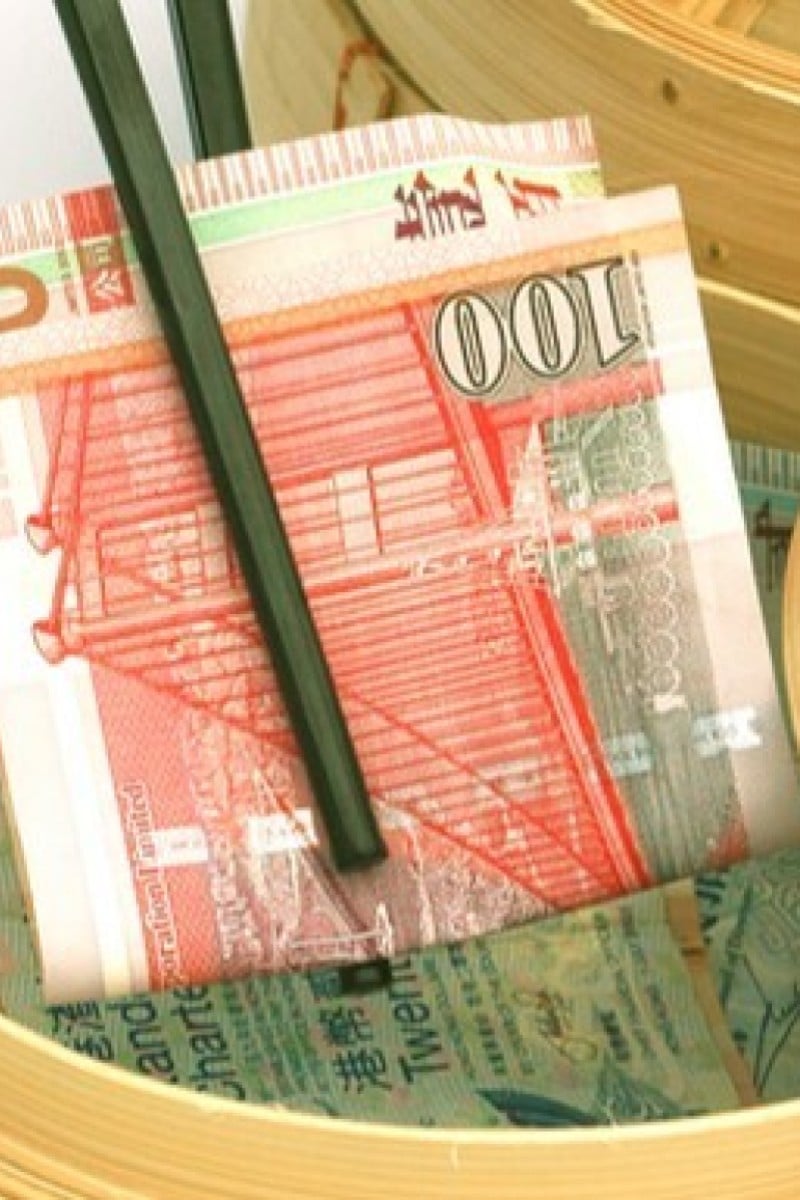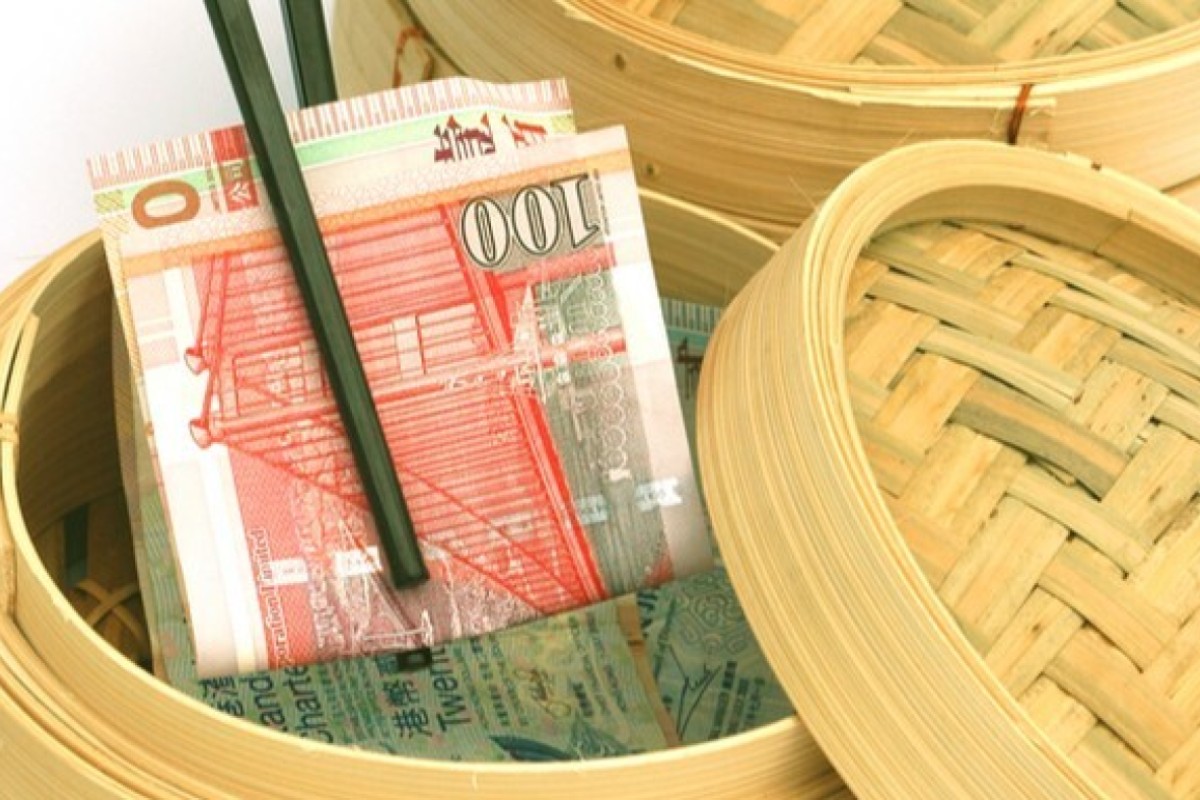
Should Hong Kong people receive cash handouts instead of electronic vouchers?
- In the 2021 Budget, Financial Secretary Paul Chan announced adult permanent residents will receive HK$5,000 in coupons
- Like last year, when HK10,000 was given to eligible Hongkongers, the money is meant to help stimulate the economy
 Would traditional cash have been a better idea or not?
Would traditional cash have been a better idea or not?I think so, because cash is more convenient. Cash can be used to pay for more things, whereas vouchers will have to be used to buy designated products at venues with the correct card-readers.
Some people may also not use the vouchers when they receive them, then forget about them until they have expired.
Amy Wong
The vouchers are a good idea if we can use them on extra-curricular activities. This is especially important for underprivileged families.
Often, children in these families are talented but lack the financial resources to hone their skills.
The vouchers could pay for, for example, coding classes. They could then develop a mobile phone game to entertain themselves and others, and might even go into coding as a career.
Samantha Zhou Nga-ting
I think the government should have given cash. I think the vouchers will cause some problems. For a start, they are not as easy to spend as cash, so people might not be able to use them on things they need. Also, not all businesses will be able to accept the vouchers, so that also limits where they can be spent.
Lily Ye
Should people whose parents earn a certain amount be forced to give away some of their lai see?
The purpose of the vouchers is to boost Hong Kong’s economy. Giving out vouchers instead of cash will ensure residents spend at a range of different shops and restaurants.
If people received cash, they may not spend it as the government intends, but rather save it for other purposes in the future.
Teresa Kwok
For sure. First, not everyone has a smartphone, particularly the elderly. Many older people still use “dumb phones”, the ones with buttons, that can’t download apps. Further, these residents do a lot of their shopping at wet markets, but again, not all wet markets have the technology to read such vouchers. I don’t think this is a fair way to distribute the benefits.
Secondly, a lot of people don’t shop in person anymore. They do most of their shopping online. If they had cash, it could be put in the bank, and then we could buy what we needed on the internet.
My final concern is that I’m not convinced these method is safe. Third, is it a safe way? I am not sure that hackers can take my money for doing anything or maybe even I can restore the code so that I can have unlimited vouchers for my whole life. However, if I take cash, it is much safer, and there are no unlimited cash for you to use.
Malcolm Chan
If you could get the Covid-19 vaccine tomorrow, would you?
Absolutely not. People seldom use cash these days because it is so much less convenient than the various e-payment systems.
In addition to their convenience in physical shops, many people do a lot of their shopping online, especially since the pandemic began. Vouchers are far more useful for internet shopping.
Kevin Ni
Definitely. Vouchers are plagued by limitations which cash easily avoids. One major concern is how the HK$5,000 vouchers will be issued. By registering Octopus cards? Most seemingly feasible plans contain loopholes that could allow a person to claim more than their dues. Distributing cash is a clearer, simpler and much more practical process.
Another concern is how the vouchers will be limited to shops with electronic payment methods. Sure, an increasing number of shops are installing new technology, but has the government thought about what people really need?
Many less well-off households struggle to provide even daily necessities, such as simple meals. A cash handout would have allowed them to buy food at wet markets, where electronic payment devices are a rare sight.
If you could swap lives with someone for a day, who would it be?
Why struggle with an undeveloped digital payment plan when giving out cash would solve most problems?
Alicia Lau
I think the government made the right choice pledging vouchers instead of cash. The Covid-19 pandemic has put a lot of pressure on local businesses, so it is responsible of the government to give citizens a way to support these businesses.
What’s more, with the spread of the coronavirus, maybe people are worried about the cleanliness of dollar bills. With the electronic vouchers the government is proposing, this won’t be an issue.
Electronic vouchers are also more convenient, as the seller can deduct the exact amount from your voucher, and you don’t have to worry about change.
Alexis Wong Yat-sum
Cash would have been far better. Some Hongkongers, for example, the elderly, may not know how to use electronic payment methods. While they may have the vouchers, they will not know how to use them. This could be inconvenient and embarrassing.
What’s more, vouchers will only be valid for certain situations. For example, they can’t be used to pay things like the rent or water bills.
There are also shops where consumers won’t be able to spend the vouchers anyway, because the businesses don’t accept electronic forms of payment. In some old-fashioned wet markets, for example, customers can only pay with cash. Such vouchers are not user-friendly at all.
Vinky Wu Wing-ki
